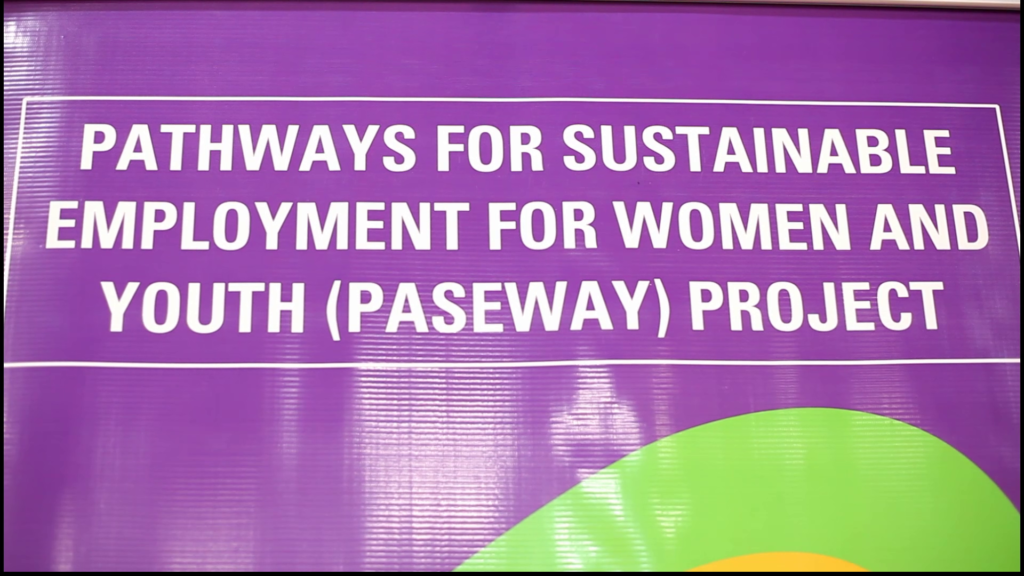A total of one thousand, two hundred and forty-one (1,241) women in the Ashanti Region have so far received skills training in hospitality under the - Pathway for Sustainable Employment for Women and Youth (PASEWAY) project.
The number is short of the three-year target of one thousand, six hundred and fifty (1,650) by end of 2022.
The PASEWAY introduced by Plan Ghana is to improve the capacity of staff in the hospitality industry and to create more jobs for women.
In previous years, 600 youth have been trained. The project has supported about 200 of them to be employed in the hospitality sector.

Ghana's hospitality industry, regarded as emerging, is ranked fourth in profitability in Africa. A number of investors have responded and are investing in the sector.
But as the industry continues to grow, new avenues emerging are seeing a decline in investment along the value chain.
The hospitality sector thrives on the natural human urge for adventure. Reports on Ghana’s hospitality industry reveals that foreigners are major patrons.
Project Coordinator of the Pathway for Sustainable Employment for Women and Youth (PASEWAY) , Richmond Larbi Asiedu, says this means there is minimal local tourism.
"We train females who are desiring to work in the hospitality industry. We give them front office jobs, housekeeping, kitchen staff, restaurant and bar jobs. Through the Business Advisory Centres and the Ghana Enterprise Agency, we facilitate the business setup for others."

CEO of Corporate Vision Consult, Charles Kusi Appiah Kubi, is positive about opportunities for tour operators in the private sector.
"When it comes to tourism, there is the need for amenities, affordability and accessibility. One of the challenges has been accessibility. The roads to most of our tourist sites are in a deplorable state. " Another challenge has been that our destinations are quite expensive in Africa. Policy makers should make efforts to reduce the cost of spending. This will attract more foreigners to spend money here."
"It is up to investment to identify areas in the tourism and hospitality sector, to invest in. Tourism cuts across education, transportation, leisure among others. In Ghana, investors are assured of getting good returns. There is peace and stability in this country," he said.
Aspects of the hospitality industry are expensive. This is due to the demand for resources like electricity, transportation and multiple taxes.
This has been a deterrent for many tourists.
For Ghana’s hospitality industry to be sustainably developed, with its numerous opportunities, all stakeholders must cooperate to ensure visitors to Ghana get an experience to be cherished for a lifetime.
The PASEWAY project is working with employers in the industry to improve working conditions of employees.
Latest Stories
-
Assessing the financial burden of Sickle Cell disease on Ghanaian households: A comprehensive strategic analysis
2 hours -
Financial knowledge is essential for career success – Absa Finance Director at ReadytoWork
3 hours -
Improve Tax Net: Modified sales tax
3 hours -
Putin congratulates Kirsty Coventry on IOC election
3 hours -
Morocco plans $1.5 bn expansion of Casablanca airport ahead of 2030 World Cup
3 hours -
Maternal mortality rates high in Greater Accra Region
4 hours -
Chinese textile maker Sunrise to build two plants in Morocco
4 hours -
Nigerian lawmakers back president’s emergency rule in oil-rich state
4 hours -
Ex-banker Thiam drops French nationality in bid for Ivory Coast presidency
4 hours -
Heathrow Airport closes all day over power outage
4 hours -
2 men receive 6 months prison sentence for conspiracy and theft
4 hours -
Armed men abduct dozens from a bus in Ethiopia
5 hours -
Ethiopia does not want war with Eritrea, says PM
5 hours -
Man arrested at Heathrow Airport over £400,000 in suitcase
5 hours -
British Museum most visited UK attraction in 2024
5 hours

